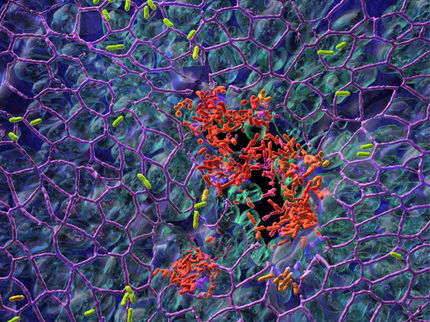Antibiotics resistance: Carbapenemase-producing germs in livestock populations
Advertisement
Carbapenems are antibiotics authorised for the treatment of humans and which were categorised by the World Health Organization as critically important antimicrobials for the treatment of humans. Reserve antibiotics of this kind are only supposed to be used when standard antibiotics no longer show any effects, i.e. for only stricted indications.
A mechanism that leads to a resistance of bacteria to carbapenems is the formation of certain enzymes called carbapenemases. What then happens is that the active substance class of carbapenems can no longer be used for the treatment of infections which were caused by carbapenemase-producing bacteria.
For the first time, the Federal Institute for Risk Assessment (BfR) has detected carbapenemase-producing enterobacteria in samples taken from livestock populations. As bacteria can transfer this carbapenem resistance to other bacterial species, consumers could theoretically pick up bacteria with these resistance properties via foods of animal origin or through direct contact with animals. Should treatment with antibiotics then be necessary, germs of this kind could pose a problem if the drug has no effect against the infection. The introduction of bacteria of this kind into hospitals could also have serious consequences and for this reason, the spread of carbapenemase-producing bacteria must be prevented wherever possible.

















































